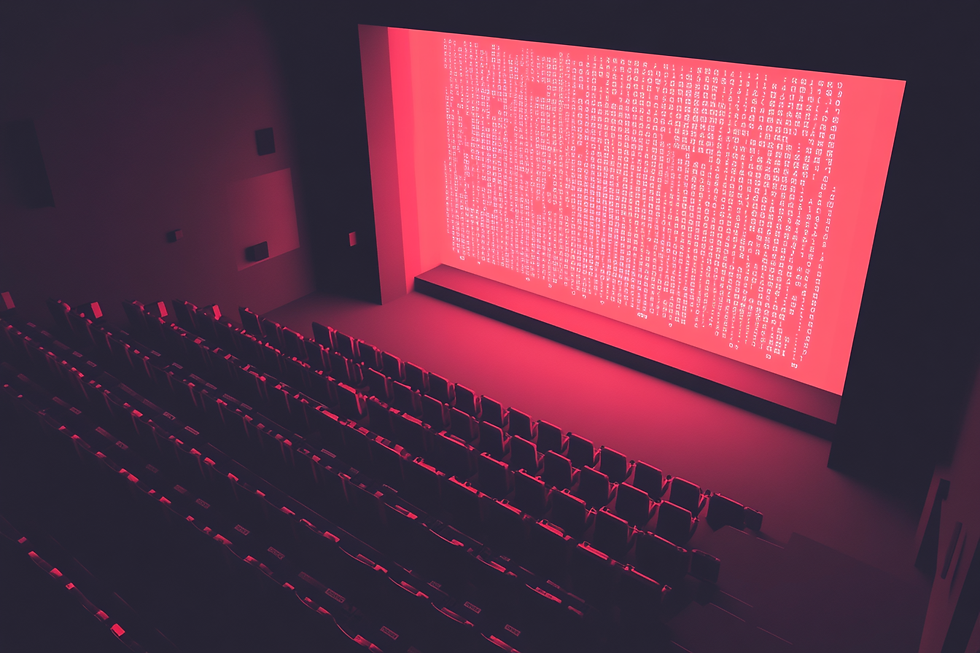Claude Opus 4.1: The Coding Revolution That's Quietly Rewriting the Future of Work
- James Garner
- Aug 10, 2025
- 5 min read
Updated: Aug 11, 2025

Anthropic's latest AI breakthrough is creating a massive productivity divide—and the 94% who think they're AI-aware are about to discover they're dangerously behind
Right, let's have a proper chat about something that's been rattling around in my brain.
Whilst most of us were busy arguing about whether pineapple belongs on pizza or debating the merits of hybrid working, another AI development dropped last week ontop of the GPT-5 announcement.
I'm talking about Anthropic's Claude Opus 4.1, and if you haven't heard of it, you're not alone. According to McKinsey's latest research, whilst 94% of employees claim familiarity with AI tools, only 51% of frontline workers actually use them regularly. That's what the clever folks at BCG call the "silicon ceiling"—and it's about to become the professional equivalent of showing up to a Formula 1 race on a penny-farthing.
That should make you spit out your morning brew: Leaders think employees will use AI for about 20% of their tasks within the year. Employees reckon it'll be closer to 47%. That's not a gap—that's a bloody chasm that's swallowing careers whole whilst we're all pretending everything's fine.
The Coding Revolution That's Happening Right Under Your Nose
Let me paint you a picture that's more vivid than a David Hockney swimming pool. Claude Opus 4.1 just scored 74.5% on something called SWE-bench Verified—think of it as the GCSE maths exam for AI, except it's testing whether artificial intelligence can actually fix real-world coding problems. To put that in perspective, that's like having a digital apprentice who can debug your entire codebase whilst you're still trying to remember where you left your reading glasses.
GitHub, Rakuten Group, and Windsurf are already reporting that this isn't just incremental improvement—it's the difference between having a helpful intern and having a senior developer who never needs coffee breaks, never calls in sick, and can refactor multi-file codebases without introducing bugs. One company described it as "a one standard deviation improvement," which in plain English means it's roughly equivalent to the leap from a decent junior developer to someone with years of experience.
But here's where it gets properly mental: whilst this technological earthquake is reshaping entire industries, only 1% of companies consider themselves "mature" in AI deployment, despite 92% planning to increase their AI investments over the next three years. It's like watching someone buy a Ferrari and then using it exclusively for trips to the corner shop.
The Great Divide: AI-Powered vs. AI-Oblivious
Here's where things get properly serious, and I need you to pay attention because this affects your mortgage payments. We're witnessing the emergence of two distinct professional classes: those who've embraced AI as a collaborative partner, and those who are still pretending it's a passing fad.
BCG's research reveals that when employees receive proper AI training and leadership support, their positivity about the technology jumps from 15% to 55%. But here's the rub: only 25% of frontline employees receive strong leadership support, and merely 33% say they've been properly trained.
This isn't just a skills gap—it's a career-defining chasm. Companies that are actively reshaping their workflows with AI are seeing employees save significantly more time, make sharper decisions, and focus on more strategic tasks. Meanwhile, their competitors are still debating whether AI is "ready for prime time" whilst their market share evaporates like morning mist.
The data is stark: McKinsey estimates AI's productivity potential at $4.4 trillion, yet only 19% of companies report revenue increases of more than 5% from their AI investments. It's like having a room full of Ferraris and using them as very expensive paperweights.
The Awareness Gap That's Swallowing Careers
Let's talk about the elephant in the room—or rather, the elephant that most people can't even see because they're too busy looking at their phones. Whilst over 300 million people use ChatGPT weekly and more than 90% of Fortune 500 companies employ AI technology, the average professional is about as aware of these developments as a goldfish is of quantum physics.
This ignorance isn't bliss—it's career suicide. When Claude Opus 4.1 can handle complex coding tasks that would take human developers hours or days, and AI tools are revolutionising workflows across industries, the professionals who remain unaware aren't just missing opportunities—they're becoming obsolete.
The most chilling statistic from the research? Leaders and managers are 43% more likely to worry about losing their jobs in the next ten years compared to frontline employees at 36%. The people at the top can see the tsunami coming; those at the bottom are still building sandcastles.
What This Means for Your Monday Morning
So, what's a sensible professional to do when the ground is shifting beneath their feet faster than a politician's promises during election season? First, stop pretending this is someone else's problem. The companies that are thriving aren't the ones with the best technology—they're the ones with employees who understand how to collaborate with AI rather than compete against it.
Start treating AI literacy like you would any other essential professional skill. You wouldn't hire a marketing manager who couldn't use email, so why would you expect to remain competitive without understanding the tools that are reshaping your industry?
The research shows that employees who receive at least five hours of AI training and have access to in-person coaching are significantly more likely to become regular users. But here's the thing—you can't wait for your company to provide this training. By the time they get around to it, the early adopters will have already claimed the high ground.
The Truth About Tomorrow's Workplace
Here's the bit that might make you uncomfortable, but needs saying nonetheless: the future of work isn't about humans versus machines—it's about humans with machines versus humans without them. Claude Opus 4.1 isn't just a tool; it's an early indicator of a fundamental shift in how value is created and captured in the modern economy.
The professionals who thrive in this new landscape won't be the ones with the most experience or the fanciest degrees—they'll be the ones who can seamlessly blend human creativity with artificial intelligence capabilities. They'll be the ones who understand that AI isn't replacing human intelligence; it's amplifying it for those smart enough to embrace the partnership.
The choice is yours: you can either be part of the 1% who are actively reshaping their workflows and unlocking AI's potential, or you can join the majority who are still debating whether this whole AI thing is just a fad. But remember, whilst you're making up your mind, your competitors are already making their move.
The revolution isn't coming—it's here. The only question is whether you'll be leading the charge or watching from the sidelines as others claim the future you could have had.
Now stop reading and start experimenting. Your future self will thank you.



Comments